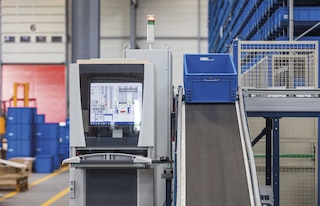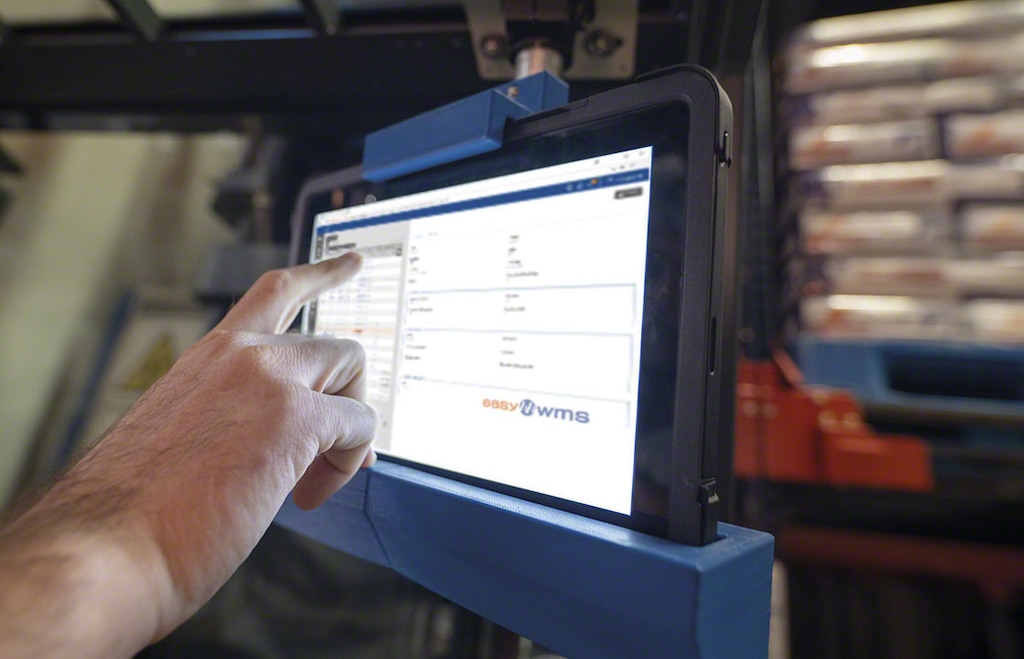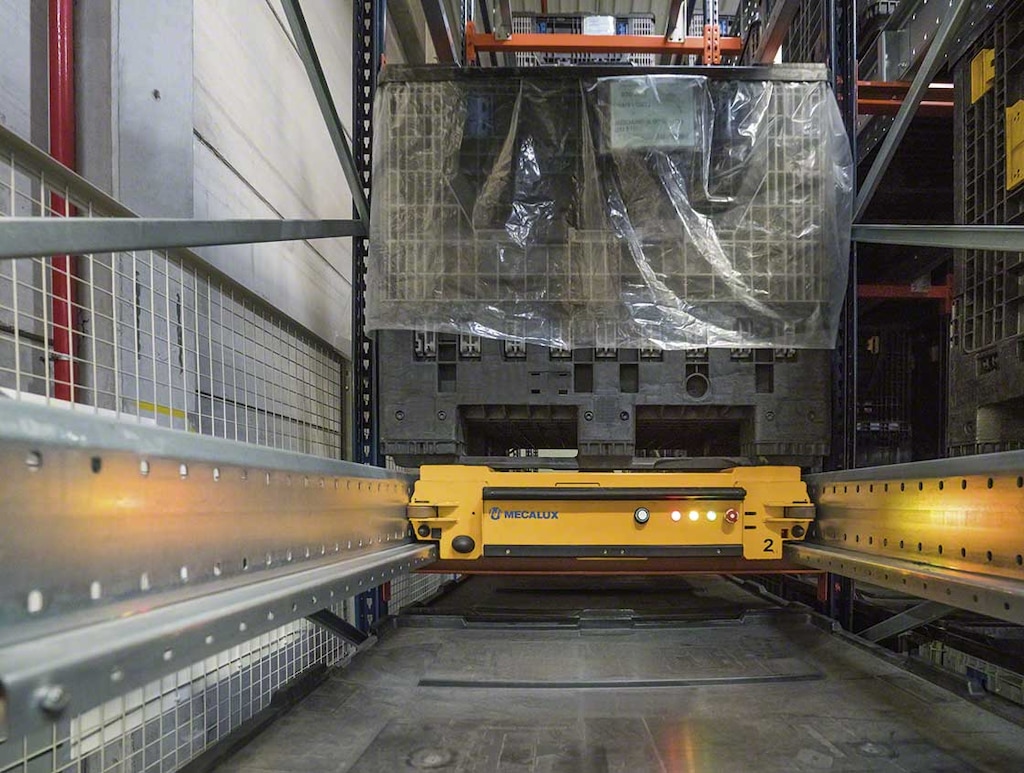
Machine learning and the supply chain: key applications
In an ever-changing, increasingly complex logistics landscape, machine learning applications in the supply chain are proving to be an innovative way to improve processes and boost productivity and competitiveness. Machine learning is a discipline of the artificial intelligence (AI) branch of computer science.
The development of systems that use machine learning is rapidly expanding. In 2019, companies invested 37.5 billion dollars in machine learning software worldwide. Forecasts from the International Data Corporation (IDC) suggest that this will be multiplied by 2.5 in 2023, reaching 97.9 billion dollars. But what’s this technology all about? And how is this trend reflected in the logistics sector? Let's take a look at this in detail.
What’s machine learning?
Machine learning is a new kind of computation system. As opposed to traditional computing, which involves the programming of static algorithms, machine learning makes it possible to process an enormous amount of data and identify patterns. By repeating this analysis constantly, the algorithm itself perfects its implementation continuously, obtaining progressively more accurate results.
Machine learning is a science that requires a period of experimentation before it can be applied practically and leveraged. For this, it’s necessary to choose the correct machine learning algorithm for each case and to have a large amount of quality data to feed and train the system.
Nowadays, most machine learning software is being developed in the Python programming language. In fact, Python hasn’t stopped moving up the TIOBE index of popular programming languages; it’s currently ranked as the third most widely used language globally.
What’s the purpose of machine learning?
Machine learning enables machines to correctly interpret external data, learn from them, and use this knowledge to make specific decisions and take concrete action on their own, without the need for human intervention.
This technology can be implemented in very diverse sectors such as finance, health care, digital marketing, and, naturally, industry and supply chain management. In fact, this technology is spearheading the changes promoted by Industry 4.0 and Logistics 4.0.
Types of machine learning algorithms
Depending on the calculations made and the nature of the tasks they have to carry out, there are various types of learning algorithms:
- Supervised learning: this is the most widespread type of machine learning. These algorithms function with input and output data sorted ahead of time. For example, if the goal is to distinguish between images of apples and oranges, the developer will indicate which photos contain apples and which include oranges. After analyzing thousands of pictures, the algorithm will learn to differentiate between them.
- Unsupervised learning: this type of machine learning algorithm doesn’t involve previously labeled input or output data. Rather, the system itself has to analyze the entire data set and detect patterns based on similarities in order to label this information without help from a person.
- Reinforcement learning: this lies somewhere in between the two types described above. In this case, the algorithm learns by trial and error, adjusting its actions dynamically based on the feedback it receives from the outside world.
In this context, it’s also common to find the concept of deep learning, a subfield of machine learning. The main advantage of deep learning is to provide algorithms with the ability to solve more complex functions with less data. It’s a model that uses neural networks to process structured data with millions of parameters.

Applications and examples of machine learning in the supply chain
According to a 2018 AI survey by McKinsey, the adoption of AI technologies in the logistics sector rose by 64% compared to the year before, taking fourth place behind electronics, the automotive industry, and telecommunications. The use of machine learning applications in managing supply chain processes is somewhat limited, however, as this technology is still in development.
Nevertheless, there are certain logistics domains in which machine learning is making a difference in terms of achieving greater profitability and efficiency:
- More accurate demand forecast calculations
Demand forecasting is a field in which machine learning is increasingly present. Machine learning algorithms use statistical models to analyze and detect patterns in a company’s sales history. Thus, they can identify the signs of a drop or a rebound in demand, making it possible to adjust inventory purchases.
The huge opportunity for machine learning in this area is to create dynamic models that not only infer patterns from a business’s own history, but that manage to evolve as new variables from other data sources are incorporated.
- Advanced preventive maintenance of equipment
Progress made in machine learning can’t be separated from the improvements being carried out in the area of hardware. This means, on the one hand, that a larger amount of data can be captured with IoT sensors and devices integrated into the machines. On the other hand, this information can be processed with computers that are becoming more powerful by the day.
Thanks to this greater availability of data for analysis, machine learning is extremely useful for the preventive maintenance of industrial equipment. In this sense, machine learning software identifies the signs of failure or malfunction and gives advance warning, preventing the equipment from breaking down.

- Smart optimization of transportation routes
New customer demands, such as deliveries during different time intervals, personalized package pickup (generally as part of reverse logistics), and shipments within 24 hours or the same day are complicating last-mile transportation. More often, there is less time for organizing routes, yet there are more factors to take into account.
Machine learning software offers various advantages in this area. For example, it facilitates ETA calculations, improving package traceability. It can also help to process a higher number of third-party data streams to find the quickest route in real time or prevent delays and interruptions.
- Spatial and voice recognition in the warehouse
AI software uses different types of machine learning to develop models that replicate the human senses. Artificial vision, intelligent navigation, and voice recognition systems use machine learning to perfect their degree of precision.
Machine learning forms part of systems being implemented to a greater extent in automated warehouses. For instance mobile robots can detect obstacles and react autonomously. Another machine learning application is found in voice picking devices, which uses it to recognize commands from operators when they interact with the system.
- Improved inventory management with machine learning
The calculation of reorder points is fundamental to optimized stock management: too much safety stock pushes up costs, and too little increases the risk of stockouts. How can you find a balance? Up to now, the equations used assume that the behavior of certain variables will remain stable, which doesn’t reflect reality.
Consequently, machine learning serves to analyze data without taking anything as given. By continuously changing the calculation parameters (demand, lead time, available stock, costs, etc.), the algorithms automatically adjust their behavior. After repeating the calculations over and over, they show new patterns that contribute towards optimizing stock.
Machine learning in logistics: one more tool for decision making
Until recently, achieving greater profitability in the supply chain meant growing in volume and leveraging economies of scale to cut costs. Nowadays, that’s no longer enough: it’s now necessary to make better and faster decisions.
The implementation of automated systems and logistics software is generating a massive amount of high-value data for the training of machine learning algorithms. This scenario is optimistic in terms of the development of machine learning applications in the supply chain, the operations of which will become more accurate as more data are collected.
While this technology has yet to be fully developed, several businesses are already harnessing the potential of data, thanks to the installation of warehouse management systems such as Easy WMS and data processing modules such as Supply Chain Analytics Software. To find out more about these systems, we encourage you to get in touch. One of our specialists will explain the advantages of using them to manage your installation.
